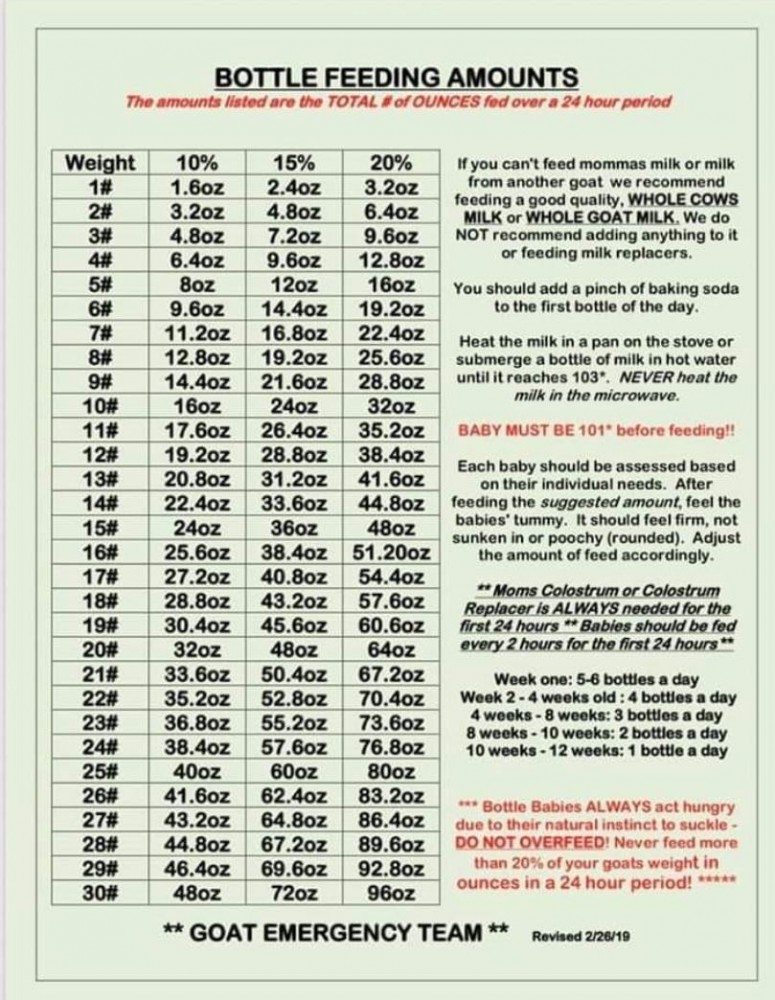Bottle Feeding Chart for Goat Kids
 Click to Enlarge
Click to EnlargeWhen bottle or tube feeding kids, remember these tips:
Don't feed babies with a body temperature below 101F
Heat milk gently until it reaches 103F. Make sure to stir the pan or shake the bottle to prevent hot spots
A quality colostrum replacer is necessary for the first 24 hours if you cannot get colostrum from the dam.
Kids will need 5-6 bottles a day for the first week. This number will decrease as the kid ages.
Don't feed more than 20% of the kid's weight in a 24 hour period. Bottle babies may act hungry, but if you're feeding them enough according to age and bottle schedule, they'll be ok!
University of Idaho Bottle Feeding Amounts for Kids (jpg; 155KB)
Upcoming Events
NYSDEC How to Get Certified Course
March 3, 2026 : NYSDEC How to Get Certified Course
Ellicottville, NY
NYSDEC training course in preparation to take the pesticide applicator exam.
From Data to Dollars: Making Data-driven Decisions to Increase Farmers Market Success
March 3, 2026
The Cornell Agricultural Marketing Research Program and Penn State University are excited to present this new, 6-week course as part of Cornell's Farmers Market Research Project. The course is for farmers with experience selling at farmers markets who wish to increase their earnings through management and marketing practices.
Cornell Organic Field Crops & Dairy Conference
March 6, 2026
Waterloo, NY
Farmers, researchers, educators, and agricultural service providers from across the Northeast are invited to the 2026 Cornell Organic Field Crops & Dairy Conference, held Friday, March 6, 2026, from 8:00 a.m. to 4:30 p.m. at the Lux Hotel & Conference Center in Waterloo, N.Y.
Co-hosted by New York Soil Health and Cornell CALS, the annual conference brings together leaders in organic grain, dairy, and livestock systems to share practical tools, new research, and farmer-tested strategies to support resilient and profitable organic production.
Announcements
Cows, Crops & Critters Newsletter Sponsorship
TRYING TO REACH GROWERS AND AGRIBUSINESSES IN OUR SOUTHWEST REGION OF NEW YORK?Weekly Email Update: Shared with 625+ households who have signed up with our program.
Monthly Paper Mailer: To reach our stakeholders and farmers who lack internet access, we send out a monthly mailer where your company's logo and contact information would be featured with a mailing list of 330+ households.
If you sponsor our weekly and monthly publications you reach approximately 955 households.





